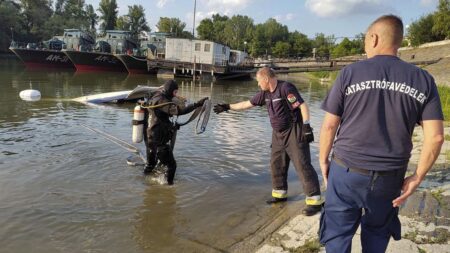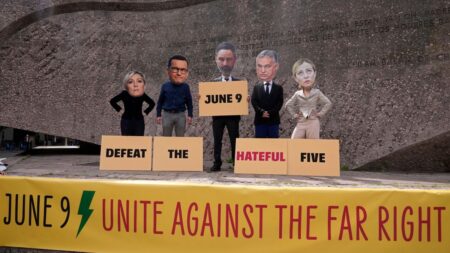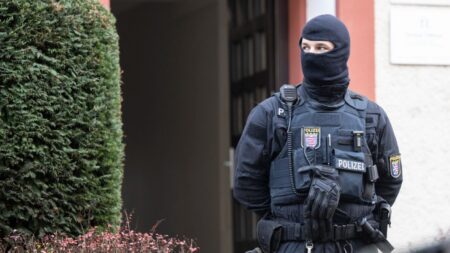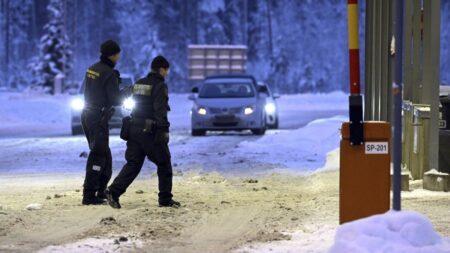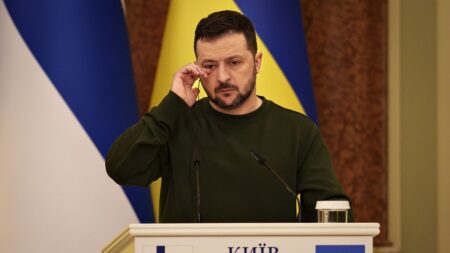France has accused Azerbaijan of meddling in its Pacific territory, New Caledonia, by supporting independence movements and spreading disinformation, amid broader geopolitical tensions.
France has accused Azerbaijan of meddling in its Pacific archipelago territory of New Caledonia.
Despite the vast geographical and cultural distance between the Caspian state and the French Pacific territory, this claim is rooted in a complex web of historical, political, and diplomatic tensions.
The Crisis in New Caledonia
New Caledonia, located between Australia and Fiji, is a French territory with a history of striving for independence.
The recent unrest in New Caledonia was ignited by a new electoral law perceived by the indigenous Kanak population as discriminatory.
This law allows people who have lived in New Caledonia for at least ten years the right to vote in local elections, which pro-independence supporters argue will dilute the Kanak vote.
France’s Accusations
France’s Interior Minister, Gérald Darmanin, has publicly stated that Azerbaijan, along with China and Russia, is interfering in New Caledonia’s internal matters. “This isn’t a fantasy. It’s a reality,” Darmanin told the France 2 TV channel, emphasizing the seriousness of the allegations.
The French government points to the sudden appearance of Azerbaijani flags at Kanak independence protests and the backing of separatists by groups linked to Baku.
Azerbaijan has vehemently denied any involvement, calling the accusations baseless. “We completely reject the baseless accusations,” said Ayhan Hajizadeh, a spokesperson for Azerbaijan’s Foreign Ministry. “We refute any connection between the leaders of the struggle for freedom in Caledonia and Azerbaijan.”
A significant element in this story is the Baku Initiative Group, established during a conference in July 2023 in Azerbaijan. This group, which includes participants from various French territories seeking independence, aims to support anti-colonial movements against France.
The group has expressed solidarity with the Kanak people and condemned the recent electoral reforms in New Caledonia. “We stand in solidarity with our Kanak friends and support their fair struggle,” the Baku Initiative Group stated.
Why are France and Azerbaijan clashing diplomatically?
The tensions between France and Azerbaijan extend beyond New Caledonia. France is a traditional ally of Armenia, Azerbaijan’s historical rival, particularly regarding the contentious Nagorno-Karabakh region.
Following the 2020 war and a subsequent 2023 offensive by Azerbaijan to reclaim control of Nagorno-Karabakh, France has openly supported Armenia.
This support includes defence agreements and military equipment supplies, fuelling further animosity from Azerbaijan. Darmanin referred to Azerbaijan as a “dictatorship,” highlighting the deep-seated distrust.
France has also accused Azerbaijan of engaging in disinformation campaigns to destabilise its territories. Pro-Azerbaijani social media accounts have been linked to the spread of misleading content about the French police’s actions in New Caledonia.
A French government source mentioned a “pretty massive campaign, with around 4,000 posts generated by (these) accounts,” aimed at inciting violence and mistrust.
This follows France recalling its ambassador to Azerbaijan in April, with President Macron expressing regret for Azerbaijan’s actions, along with his hope that the Azerbaijanis would clarify their intentions.
Why New Caledonia?
While Azerbaijan’s direct interest in New Caledonia might seem far-fetched, it fits into a broader strategy of challenging the French colonial legacy and supporting separatist movements.
By aligning with anti-colonial sentiments, Azerbaijan aims to position itself as a champion of liberation movements, simultaneously discrediting France on the international stage.
This effort is seen as part of a broader geopolitical manoeuvering, including Azerbaijan’s efforts to tarnish France’s image, as noted by its alleged disinformation campaign against France’s capability to host the Olympic Games.
The heightened tensions have had further repercussions. The French Sports Minister cancelled the Olympic flame’s journey through New Caledonia, for security reasons, but also an action that reflects the severity of the unrest and the accusations of foreign interference.
The involvement of Azerbaijan in New Caledonia’s unrest is a multifaceted issue rooted in broader geopolitical rivalries and historical grievances.
For Azerbaijan, supporting independence movements in French territories is a way to strike back at France for its support of Armenia and to bolster its own international standing.
For France, these actions represent a direct challenge to its sovereignty and stability in its overseas territories, prompting strong accusations and heightened tensions between Paris and Baku.
Read the full article here



